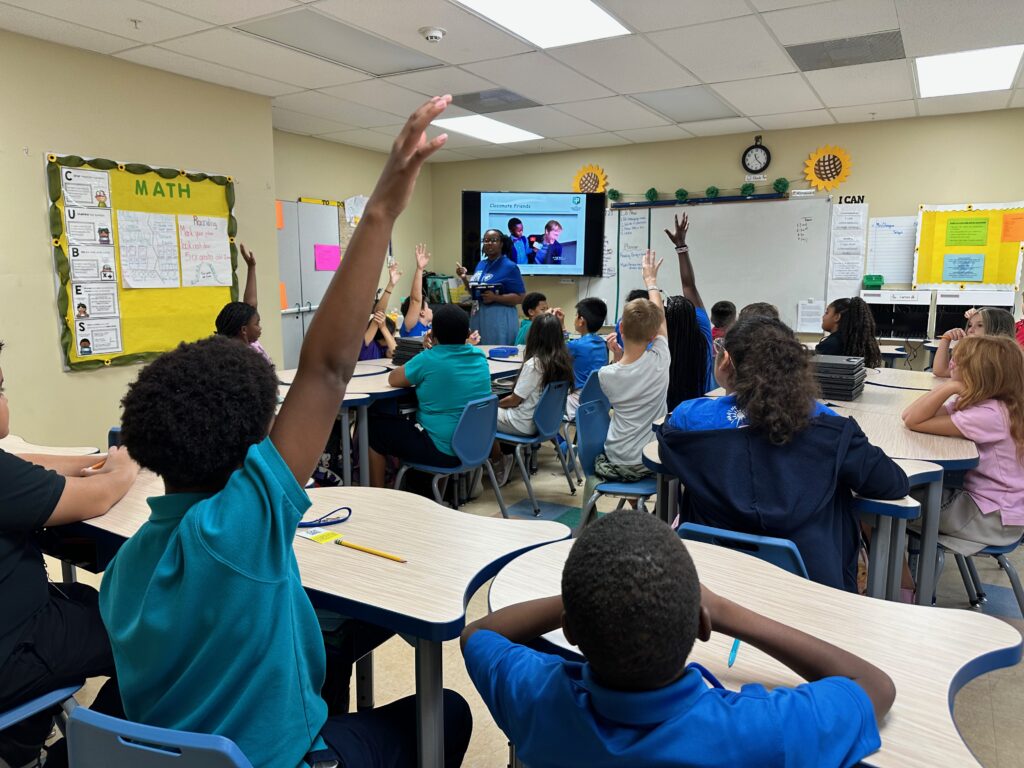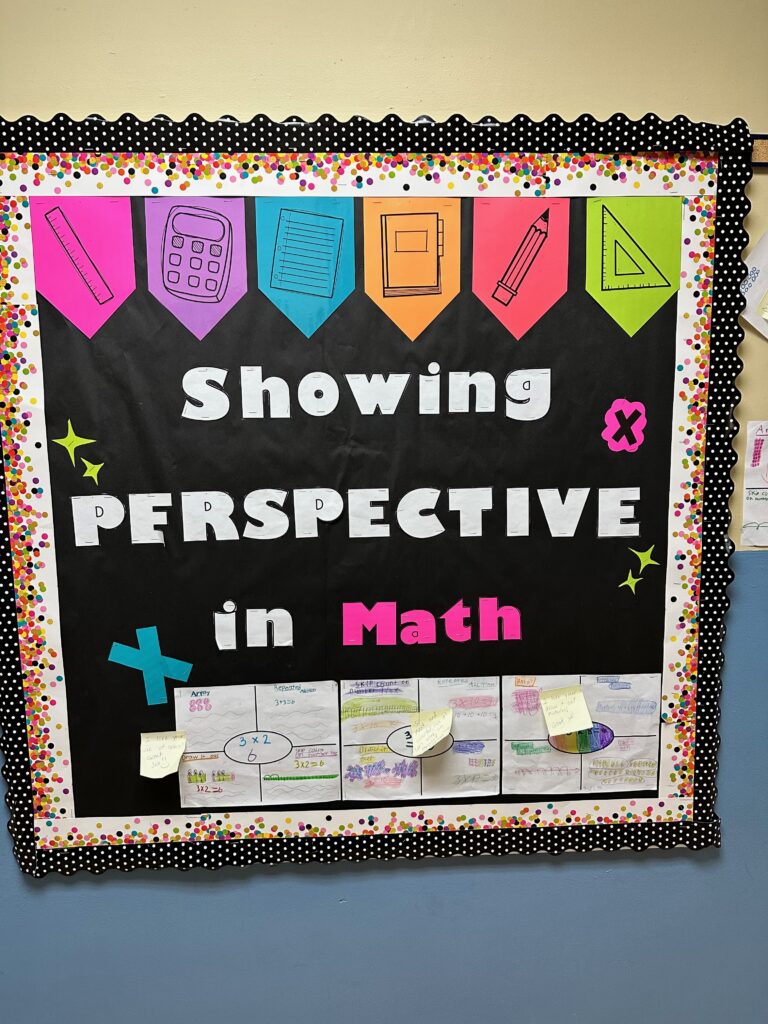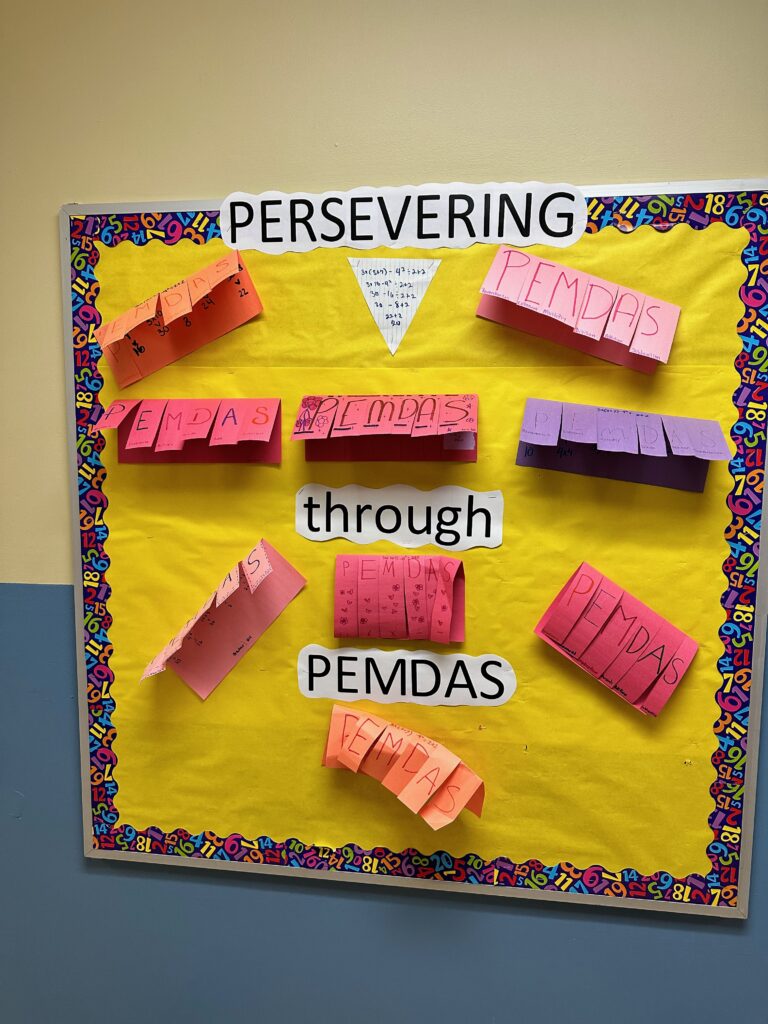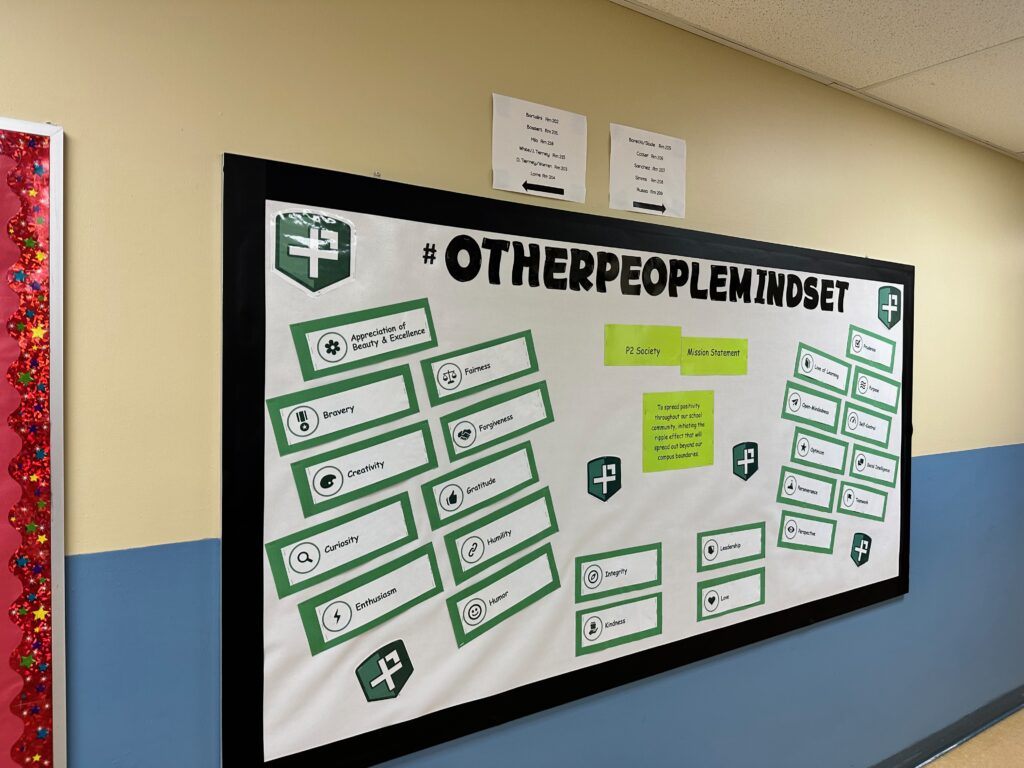Investing in Character and Relationships: The Payoffs of Strategic School Culture Development
By Dominic FrisinaStrong school culture has a feeling. You can’t put your finger on it exactly, but it hits you in 30 seconds or less. When you know, you know. And today at Imagine-Chancellor, we knew.
School pride is a real thing – and it’s moving. I asked a student early in my visit how long he had been a student there. “Since Kindergarten…I’m a lifer,” he said with a grin. After about 10 students told me the same, with the same grin, Principal Stephanie Standley explained what a meaningful term that was, and I could tell. Growing students from Kindergarten inside of your school, your routines, the culture. The way that students who are lifers engage with you hits differently. They’re incredibly present, and, moreover, engaging.

And for the “non-lifers” you can see the culture embracing them, almost absorbing them into the norm. It’s a destination, and there is a school there waiting to embrace them. There’s not an absence of students who need extra support, but there is a clear process for how it is provided. You can call it upstream – investing their time daily in doing the right things to provide short and long-term benefits.
I was told there are about 16 new teachers, and with the hiring landscape being what it is, you’d think new teachers would stand out. Yet, I wouldn’t have been able to tell if someone didn’t tell me. They blended right in — just like veteran Chancellor teachers. And, yet again, there’s the culture piece. They’re facing adversity, but they lean into it and succeed.

When establishing priorities in school, one of the first things we learn as young students is the power of what is hung on the wall. It’s the important stuff, and it shows what the school values. It builds pride — and also a sense of curiosity. There was no question about what they value at Chancellor: Character and Relationships.
Relationships are the thread that is used to connect each wall to the other, weaving character strengths across each curricular area. Every inch of the school demonstrated a commitment to relationships while simultaneously showcasing the achievements unique to individual students. It was a decorating masterclass, but it also seemed just right for a school with a culture like the Chargers have.



Jeff Bryan, P2’s co-founder and CEO, has been interviewed by Partner School students before. But each interview is unique, and this one did not disappoint. Students crafted clear and thoughtful questions ahead of time, and after carefully researching P2. When I inquired about the process, the kids explained that there is a team of writers, and that upon completion of the questions, there is a final writer who screens and revises them before distributing them to the interviewer. And, again, the explanation was stated matter of fact, almost to say, “Hey, that’s just the way it works here.”
There is a growing habit of dismissing the accomplishments of schools like Chancellor — and, therefore, their school culture — because they “get the kids that are easy to manage.” I can assure you that’s not a thing here. They built their culture through optimism, prudence, perseverance — and relationships. They certainly have adversity. They have students that are neurodiverse and in need of support — and they’re facing the same climb as every other school. We were there for a real school day, and we saw that they’re dealing with real kids.
Their work was approached with passion as individuals but also as a team. And that’s where P2’s strategy, training, and resources have come in. They started slowly, having classroom teachers leverage the tier 1 daily lessons, and gaining buy-in through the ease of use of resources. Then they scaled, little by little, they used additional resources, looked for school-wide areas to incorporate P2, and tied it to awards and incentives. They built their culture without needing to make up every resource from scratch, dedicating their time to character and relationships.
As one of the original 33 P2 Partner Schools, the development of their school culture seemed to happen in parallel to the development of P2. As we head into next year, Imagine-Chancellor will see their first graduating class of 8th graders who spent their entire academic career implementing P2 from Kindergarten through 8th grade. To say their connectedness shows is an understatement. Rumor has it that they’ve got a big graduation planned, and we’re looking forward to seeing that graduating class of 8th graders take what they’ve learned to high school!
There’s much to be proud of and much that is replicable. One of the things that struck me was the first core of individuals who brought P2 back to their school in 2016. Everyone on that team took their buy-in of P2’s focus and used it to propel the school, understanding that positive psychology’s 24 character strengths had a place at Chancellor. Unsurprisingly, those same individuals who initially brought P2 to Chancellor, continued to grow in their careers and have increased their leadership roles. These individuals laid a solid foundation, but also brought others in, knowing that scaling takes a team. It was emotional for them to reflect on this, knowing they made the right decisions and stayed the course. It was awesome to see on display, plain and simple.
I’m on the plane home to New York, tipping my hat to Imagine-Chancellor. Like I said, the right culture can be felt in 30 seconds or less. And that’s empowering – it’s the social proof that investing in character works, that relationships are the cornerstone of happiness, and that strategy matters. It’s a million interactions, best practices, consistency, and time. It’s mindset – knowing that other people matter, and putting in place resources that cultivate that. It’s the work of people who care deeply, partnered with people who care deeply that they have what they need to get there. Now, more than ever, that’s what we will need in our schools.


